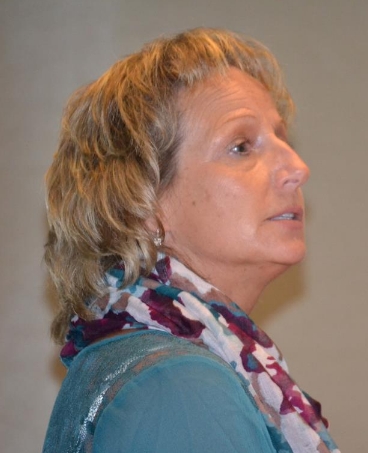
Features
Applications
Environment
Environment Protection
Poultry
Poultry Production
Production
Protection
Sustainability
Air permitting, wastewater treatment topics at enviro meeting
October 5, 2015 by US Poultry & Egg Association
 Rechelle Hollowaty, senior air permitting and compliance engineer, Tyson Foods, addressing attendees at USPOULTRY’s 2015 Environmental Management Seminar in Destin, Fla.
Rechelle Hollowaty, senior air permitting and compliance engineer, Tyson Foods, addressing attendees at USPOULTRY’s 2015 Environmental Management Seminar in Destin, Fla. October 5, 2015, Tucker, GA – “NESHAP 6C federal regulations apply to area source standards for gasoline dispensing facilities, and some people tend to miss NESHAP 6C when applying for air permits,” said Rechelle Hollowaty, senior air permitting and compliance engineer, Tyson Foods, during her “General Air Permitting Requirements and NESHAP 7D Overview” presentation at USPOULTRY’s 2015 Environmental Management Seminar in Destin, Fla.
Hollowaty reviewed the common sources applicable to construction permitting, including fuel sources, process sources, air pollution equipment and tanks. She also discussed NESHAP 7D compliance requirements, which are applicable to prepared feed manufacturers who add chromium and manganese compounds to their product. Hollowaty remarked that NESHAP 7D is “very subjective” in its wording related to “keeping exterior doors in immediate affected areas shut except during normal ingress and egress, as practicable.”
In his presentation on “UV Technology for Disinfection Systems,” Dr. Ted Mao, vice president of research, Trojan Technologies, described how ultraviolet (UV) light eliminates risk of acute illness due to waterborne pathogens by inactivating pathogens without using chemicals. Mao described the different types of UV lamps available, which are characterized by the mercury vapor pressure inside the lamp and the UV energy they produce. Mao observed that “UV disinfection is a chemical-free, environmentally friendly, low footprint technology, which is effective for a broad range of microorganisms.”
Jamie Burr, area environmental manager, Tyson Foods, provided a case study on the “Environmental Impact of Quaternary Compound Use” at one of Tyson Foods’ slaughter and further processing plants that processes roughly 600,000 birds per week.
Burr remarked, “NPDES permit compliance is a must. Intervention and sanitation chemical usage in the processing plants can seriously impact the health and effectiveness of our wastewater treatment facilities. This is a significant challenge today and will not get easier.”
Other topics included a Policy/Regulatory Update; General Duty Clause Compliance; Permitting Pitfalls; Clean Water Award Winners’ Virtual Plant Tours; TRI Reporting for the Poultry Industry; Sodium Hypochlorite Storage Requirements; Microbial Intervention Chemicals Use: Quaternary Use in Biological Nutrient Removal Plants; Stormwater Treatment Challenges and Technology; and Biosolids Handling Opportunities.